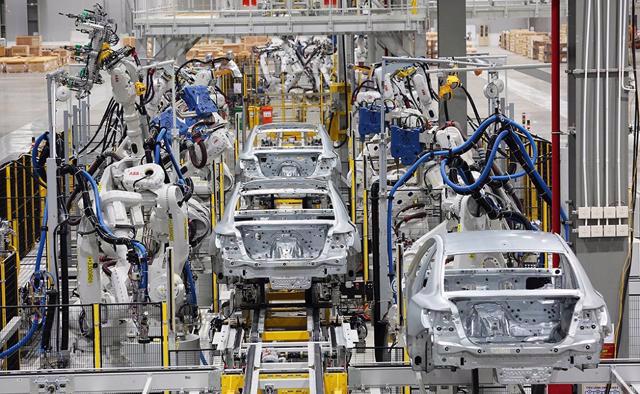In its recent draft strategy for the development of Vietnam's automobile industry by 2030, the Ministry of Industry and Trade (MoIT) has set a target of achieving a total annual car sales volume of about 1-1.1 million vehicles by 2030, with an average annual growth rate of 14-16%.
This is nearly double the record of 509,141 cars sold in Vietnam in 2022.
Among these, electric, hybrid, and solar-powered vehicles are expected to reach 350,000 units.
Under the draft strategy, domestically manufactured and assembled vehicles will account for 70% of domestic demand by 2030 and 87% by 2045.
Currently, completely built-up (CBU) imported vehicles account for over 40% of the market, according to data from the General Department of Vietnam Customs and the Vietnam Automobile Manufacturers Association (VAMA).
Vietnam plans to strengthen the supporting industry for the automotive sector. By 2030, the supporting industry is expected to meet around 55-60% of the demand for components and parts for domestic automobile assembly, increasing to 80-85% by 2045.
The supporting industry will also leverage technology to manufacture key components like drivetrains, gearboxes, engines, and car bodies. Collaboration with major automotive companies will be essential, and selecting the right parts and components for production will allow domestic firms to integrate into the global supply chain.
Currently, there are about 30,000 mechanical enterprises nationwide, accounting for nearly 30% of the total number of manufacturing and processing enterprises.
However, according to the MoIT, the quality of the workforce in the mechanical sector has not yet met the requirements for operating high-tech equipment, which significantly affects the production efficiency and economic performance of the mechanical processing industry.
Domestic manufacturing has mainly focused on simple, bulky parts that are labor-intensive and low-cost, such as seats, batteries, and large plastic components. High-tech and complex components still need to be imported, and domestic companies are not yet capable of producing complex component clusters.
Most car parts are made from steel, yet Vietnam remains dependent on imports for this material. Key components that endure high stress and temperatures, such as engines, gearboxes, and crankshafts, need to be made from gray iron, ductile iron, aluminum alloys, or other specialized materials that Vietnam has to import currently.
The MoIT emphasizes that producing quality cars requires high-quality materials and advanced manufacturing capabilities, including robot programming and quality control. While the Vietnamese automotive industry has established a presence in the market, it still has work to do to gain the full trust of domestic consumers.









 Google translate
Google translate